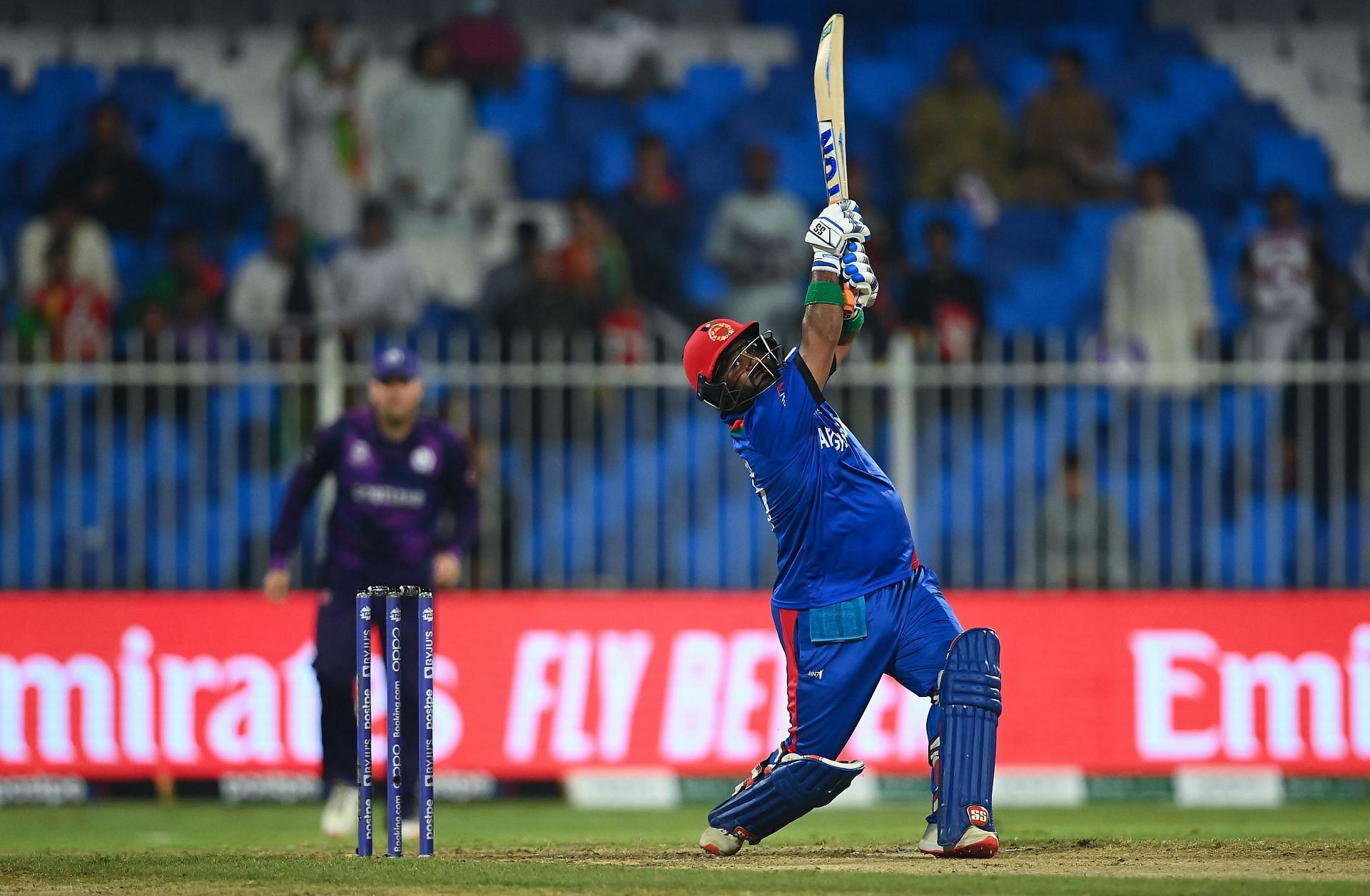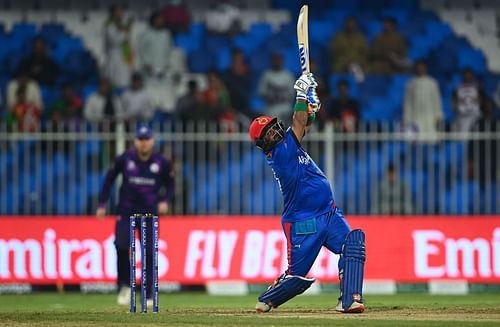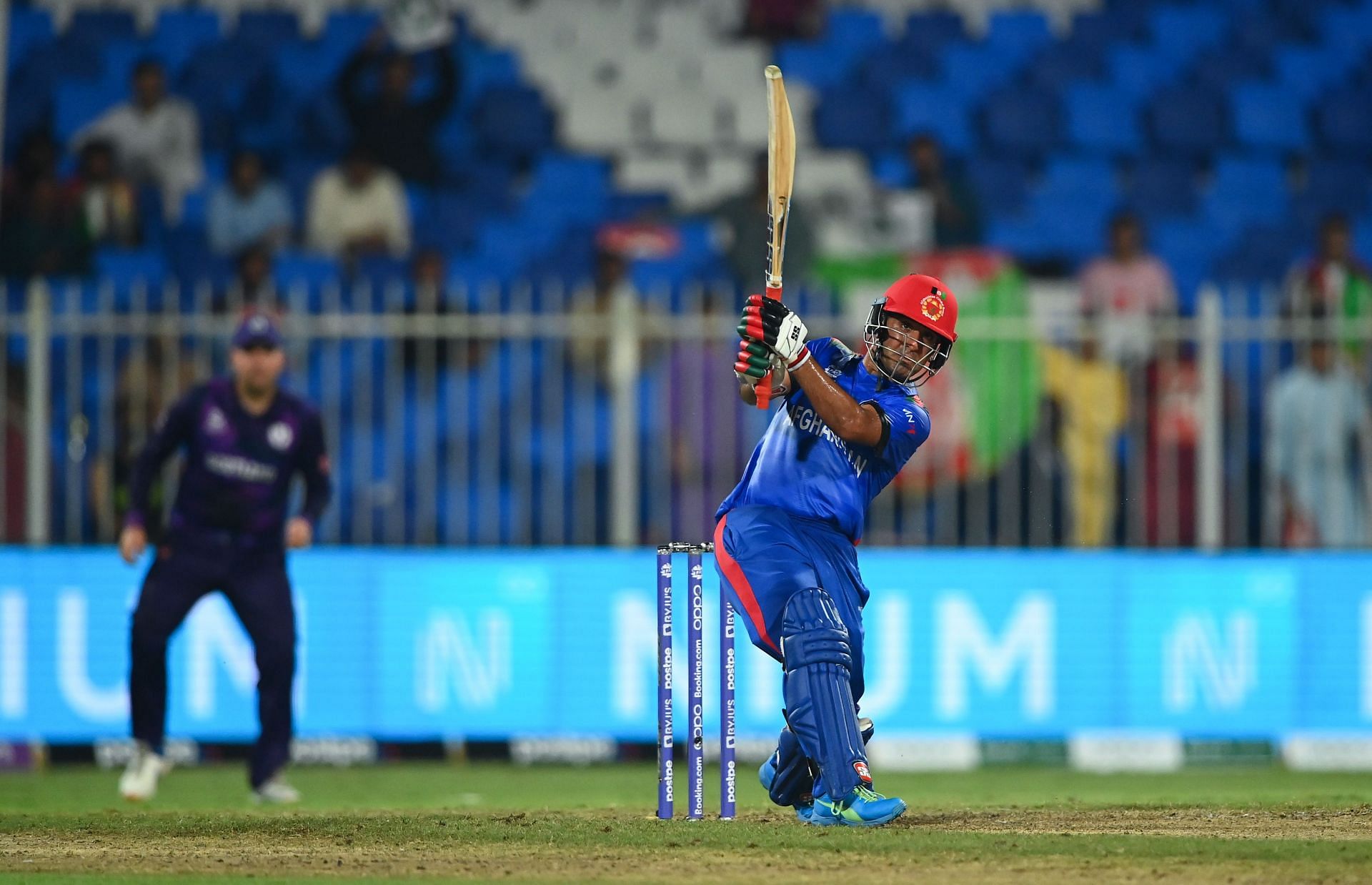
Afghanistan's brawn & brain combo is here to stay

Over the past few years, the Afghanistan cricketing story has captured the imagination of almost every fan. Not just because of the meteoric rise it has entailed, but also because of the off-field aspects these cricketers have battled to just be present on the world stage.
That they’ve churned out a few world-class players along the way has only made people appreciate Afghanistan's cricketing journey.
Before the 2021 T20 World Cup, however, Afghanistan – the country, was in utter turmoil. It had seen the government being overthrown and had seen one of their major allies desert them at a time of need.
Essentially, everything that could go wrong was happening. Their cricketers, meanwhile, most of whom were marooned in some corner of the world, had to undergo a long wait. Not just to get to the UAE but also to find out if Afghanistan would indeed be allowed to participate at the T20 World Cup.
Thus, when Mohammad Nabi (a day before their game against Scotland) quipped that he and his boys intended to bring a smile to the faces of people back in Afghanistan, it wasn’t a surprise.
Things are pretty arduous in Afghanistan, make no mistake about it. Sport, though, has the incredible power to just make it right – something Nabi wanted his troops to embrace and put their best foot forward in a T20 World Cup yet.

On paper and in terms of the narrative, it seems an easy enough task, considering Afghanistan, in cricketing terminology, don’t have a lot to lose, especially when facing the likes of India, New Zealand and Pakistan.
When taking into account the shortcomings that have plagued Afghanistan at ICC events, it becomes clear that the path from being an unheralded side hopeful of causing the odd splash to becoming an outfit expected to set the cat among pigeons is perhaps the difficult part.
For most of the past editions, Afghanistan’s batting has been their weaker suit. Not because bowlers of the ilk of Mujeeb Ur Rahman, Nabi and Rashid Khan make up their bowling attack but also because their batters haven’t really been able to instill fear in their opponents.
That, though, could be about to change – something that Scotland and the West Indies would testify to. And, of course, something that has made the rest of the T20 World Cup field sit up and take notice.
Over the years, there has been a raging debate around what method is best suited to T20 batting. For every Chris Gayle who just relies on boundaries, a Babar Azam is present – someone who rotates the strike efficiently before picking and choosing his moments to attack.
Before the 2021 edition, Afghanistan didn’t really have the resources to emulate what Gayle and to an extent, England and West Indies have done in white-ball cricket. Instead, they had to hope that their batters scrapped their way to a competitive total – a total that would then be defended by their band of world-class bowlers.
Afghanistan now has genuine power-players in their mix. Mohammad Shahzad, who has been around the circuit, has become more efficient. Hazratullah Zazai eats up length deliveries for breakfast and Rahmanullah Gurbaz might just be the best young batting talent across the globe.

Afghanistan pummeled Scotland into submission
Against Scotland, each of those came to the party. Shahzad and Zazai wreaked havoc during the Power Play. The latter, in particular, was severe on anything that was bowled in his arc.
Once the field restrictions were lifted, Afghanistan found it a little tough to rotate strike – something emphasized by the 40 dot balls they played through their quota of 20 overs. The flip side was that they also scored 62.1 percent of their runs in boundaries against Scotland.
To put things into perspective, Bangladesh and Sri Lanka, who had played at Sharjah just a day earlier, had boundary percentages of 49.12 and 54.65, respectively. Both teams breached the 170-run barrier too, indicating that there are two methods of batting that can be utilized at Sharjah.
Apart from the top three, Afghanistan are also blessed with a middle order that is experienced enough to hold its own and exuberant enough to be the most fearless and uninhibited version of themselves.
Najibullah Zadran showcased those tendencies against Scotland, with some of his strokes landing on the roof and the streets outside the stadium. Nabi also provided the thrust that was needed at the end and that, coupled with the presence of Rashid Khan – who strikes at 152.65 at the death since 2019, means that Afghanistan have the requisite firepower.
More importantly, though, they seem to be showing the kind of commitment that can make this particular endeavor fruitful. Earlier, Afghanistan, despite having an inclination to be gung-ho, weren’t really able to do so. Partly because their batters weren’t established enough but largely because they didn’t feel that this method would work. Now, they know that it does.
The story on the bowling front is slightly different. While there is a lot of brawn involved in the way Afghanistan have batted so far, their bowling revolves around clever plans and variations.
Mujeeb embodies that philosophy to the tee, with his mystery spin being exceptionally hard to decipher. Remember, the spinner has now been around the circuit for the past few years. The fact that batters are still finding it tough to read him is a testament to his quality.
As far as plans are concerned, they came to the fore against Scotland beautifully. Richie Berrington – a batter who had scored 373 T20I runs for the Scots in 2021 bore the brunt of it.
When Berrington arrived at the crease, Mujeeb welcomed him with a couple of deliveries that spun away. Subsequently, the Scottish batter was willing to sit deep in his crease and waft at the ball with his hands and minimal foot movement.
All of a sudden, Mujeeb got a delivery to rip back into Berrington, meaning that he was trapped on the crease. The ball struck him on the pad and even the DRS couldn’t save him.
Mujeeb was dominant throughout his spell – bowling four overs straight and getting the better of five Scottish batters. So much so that by the time Rashid marked out his run-up, the game had already passed Scotland by.
Rashid still picked up four wickets to improve his international numbers, with almost all of his scalps coming via deception of the batters in flight. The leg-spinner never really tosses the ball like a Ravichandran Ashwin usually does.
Instead, he varies his length while adopting a similar trajectory – something that pins a lot of batters on the crease and makes them susceptible to the LBW.
Again, this isn’t something that people haven’t been accustomed to. Mujeeb and Rashid have been bowling in a similar manner since their T20 debuts. Yet, batters can’t do a lot if both of them are at the peak of their powers. They are that good.
That, though, just illustrates the different methodologies Afghanistan are adopting, with respect to their batting and bowling.
With the willow, they are willing to throw caution to the wind and use raw strength to outmuscle every opposition in its path. With the ball, they know what works for them and they are a lot smarter.
Or in other words, have a greater percentage of success when compared to their batting because, well, there will be days when their batting unit crumbles like a pack of cards, especially if they want to be belligerent irrespective of the situation.
To be fair to Afghanistan, that approach could just be right for them. On days when it comes off, they will post a total that will be way beyond the reach of opposition batters. On the occasions when it doesn’t, they will still have the tactical nous of their world-class bowlers to fall back on.
In simpler words, it seems that Afghanistan have stumbled upon the perfect recipe. Though both of their victories in the past week have come against Scotland and a beleaguered West Indian side, it wouldn’t be a surprise if they continue this trend against India, New Zealand or Pakistan.
Maybe then, it means that Afghanistan’s brawn-brain combo is here to stay and that they can, to the expectations of many, bring back the smiles that the country craves.
Sport is special. And, when it is played with the amount of emotion and passion Afghanistan have already exuded, there’s nothing quite like it – even when other factors aren’t as favourable.